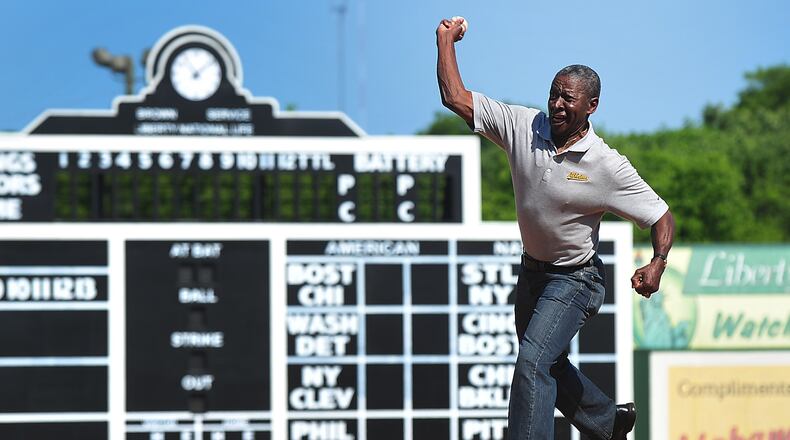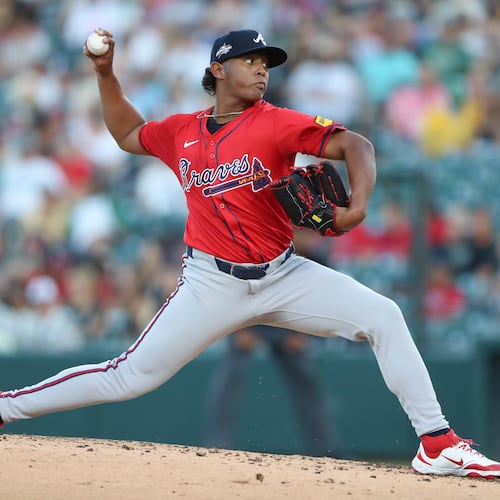Larry Colton’s Major League Baseball career was brief, but he has fond memories of his short stint with the Philadelphia Phillies.
He pitched his first game against the Cincinnati Reds and the first batter he faced was Pete Rose, who got a double off of him. Colton pitched two innings of relief and struck out two batters.
“If I had as much discipline during my baseball career as I do in my writing career, I could have been a 20-game winner,” Colton said during a telephone interview on Saturday.
But just a few days after pitching against the Reds, an elbow injury derailed his career. Colton’s professional baseball career lasted six years, but injuries never let him reach his potential.
He holds the record for strikeouts in a college game with 19 in 1963 during his time at the University of California-Berkeley.
Now, Colton is an author, touring to promote his fifth book, “Southern League: A True Story of Baseball, Civil Rights, and the Deep South’s Most Compelling Pennant Race.”
Colton began the tour in Birmingham, where inspiration for the piece took place. The book details the year 1964, a pivotal time in the Civil Rights movement. Birmingham was considered the epicenter of American racial conflict, but the Baron’s of the Kansas City A’s affiliate in the the Southern League that season became Alabama’s first-ever integrated team.
The roster for the Barons included pitcher Blue Moon Odom and shortstop Bert Campaneris, mainstays on the Oakland A’s championship teams in the 1970s. Catcher Rene Lachemann, the current first base coach for the Colorado Rockies, who made his name in the majors as a manager for nine years, made three appearances for the Barons that season.
The Barons held a reunion this past week, which included Odom.
Colton never played for the Birmingham Barons. He spent time with the Macon Peaches, who played in the same league as the Barons.
After stops in Mississippi, Colton took time to speak with The Atlanta Journal-Constitution on Saturday afternoon. He will have a book signing at 7 p.m. Monday at the Jimmy Carter Library and Museum.
AJC: How was the reunion?
Larry Colton: They were excited. Most of those guys haven't seen each other in 40 plus years. They were just so happy to be around each other. Minor league teams usually don't have reunions, so it was a special time for them. It was great for me to be able to observe them and watch them interact with each other.
AJC: What was the Southern League like, in particular your time playing for Macon?
LC: It was my second year of pro ball. Just like the guys with the Barons, you weren't really caught up in the Civil Rights side of things. Your main was focus was getting to the big leagues. Players weren't social activists or anything. We just wanted to play ball. Many of the guys on that team knew the significance of being the first integrated team in the Deep South, but that wasn't their concern. The black players weren't allowed to stay in the same hotel or eat in the same restaurants. So the white players basically only saw the black players on the bus and at the ballpark. Once the game was over, we had to go our separate ways.
AJC: I know you guys weren't focused on the Civil Rights movement, but how did the segregation affect the team?
LC: It was sort of like, that's the way it was. This was 17 years after Jackie Robinson broke the color barrier, and in some ways, some of these players had it tougher than Jackie. Prior to 1964, they had a rule in Birmingham called the "checkers rule." It was a city ordinance that said blacks or whites couldn't play anything together including checkers. So the owner of the Baron's at the time, who is the hero of this, decided to defy the "checkers rule." In doing that, he defied the Ku Klux Klan. There were death threats, bomb threats and all sorts of things called in against them. Collectively, it was a team, but so much of team camaraderie is built around the hotel lobby and doing things late at night, and these guys weren't a part of that.
AJC: What do you hope people get from this book?
LC: I hope people see the power of baseball. Just like Jackie Robinson broke barriers and some of the prejudice that exists, so too did these players. My conclusion after doing the research is that there had never been integrated anything in Birmingham. So this was an experiment not only on the field, but the stands became integrated too. It was successful and the team was successful. There was always the threat of something bad happening, but it didn't. It was just an example of what could happen if people opened their minds. It proved that people working together with a common goal and using the vehicle of sports, in this case baseball, could help everyone to see the bigger picture. Birmingham was the epicenter of the Civil Rights movements. From that point forward, the city progressed. Now, we have the reunion and Birmingham has one of the best parks for a minor league team you could ever imagine. That's all possible because of what these players did 50 years ago.
AJC: Do you think this Barons team deserves more credit for integrating baseball?
LC: I think they do because it was in the South. Now, there are quite a bit of Major League Baseball teams in the South, but back then, Washington D.C. was as far south as it went. When they started, it was at the worst possible time for Civil Rights in America. Jim Crow was still the way of life. The violence was extremely high, and the South was not a safe place to be. Being a ball player made everyone a little ignorant to the times because all we cared about was moving up. In retrospect, knowing the danger of it all, I'm sure some players from that time wouldn't have wanted to be assigned there. But that's what made it great and these players deserve a lot of credit for what they did.
About the Author
Keep Reading
The Latest
Featured

